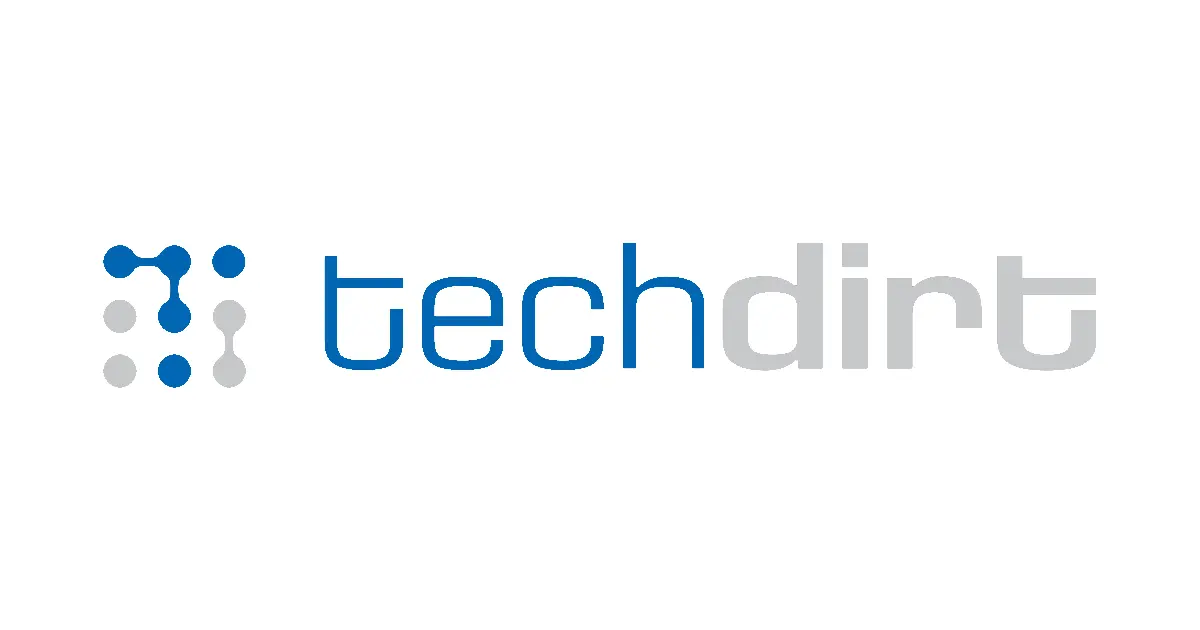We’ve noted a few times how the political push to ban TikTok is a dumb performance largely designed to distract people from our failure to pass even a basic internet privacy law or regulate data brokers. We’ve also noted how college bans of TikTok are a dumb extension of that dumb performance, and don’t accomplish anything of meaningful significance.
When the college bans first emerged we noted they’d be trivial to bypass, given the bans only apply to the actual college network. They obviously don’t apply to personal student use over cellular networks. And, not surprisingly, students are finding it extremely easy to bypass the bans, either by simply turning off Wi-Fi when they want to access the social network, or using a VPN:
“The student body, quietly, in unison, added Wi-Fi toggling to their daily routine. “Everyone was so nonchalant about it,” Pablo says. “They really just did not care.”
“There wasn’t a whole lot of pushback, aside from a lot of grumbling and groans,” says Ana Renfroe, a sophomore at Texas A&M. Some of her professors are still showing TikToks in class. They’ll just ask students to download the videos at home she explains, or will upload them to another platform like Instagram Reels.”
The folks who spent several years hyperventilating about how TikTok was some unique threat to the public (on an internet where countless international companies, ISPs, app makers, and data brokers over-collect and fail to secure consumer data) are, of course, nowhere to be found.
But now the college’s IT/security team doesn’t have to deal with that particular piece of spyware on their network, which is a step in the right direction.
This is like putting a bandaid on a hatchet wound. We need actual data ownership laws in this country.
This doesn’t stop that at all. It just wouldn’t be able to send it to TikTok’s servers while connected to the network, but that doesn’t necessarily stop it from collecting shit.
Besides, if they wanted to ‘spy’ on universities, the ones that banned it almost certainly weren’t the targets, and there’s more effective ways to get important data like having stuff on people’s laptops.
It DOES stop that on a college network level. Maybe not per the individual… but that’s not the point anyway. The college/university doesn’t care that their students use the app. It cares that you are using it on their servers/devices because they view it as a vulnerability to their network.
They can literally just approach any US based social media and pay to access their data.
If there is a threat it is Tiktok dumbing down people who use it. The amount of misinformation is staggering not to mention getting it users addicted to quick meaningless videos.
I cringe everytime I see Tiktok or Youtube shorts. It is like they are designed for goldfish brains to watch with no long-term memory or critical thinking whatsoever.
Except it doesn’t? Any of the things TikTok would do it can still do when it reconnects to another Wifi network, or the cellular service, location tracking, etc. It’s not like TikTok is a worm that stays on a network – it records data more than uploads it.
Im pretty sure the point was to never ban it outright, it was to remove tiktok from the managed networks, which it has done extremely well.
I don’t think the IT teams were ever brought into that discussion, nor was security genuinely a concern. I think this was purely performance art.
There is genuine security concerns, notably from most major cybersecurity experts. It was an overreaction, but it definitely was founded in reality.
Was it? Which specific security concerns would this have addressed?
https://www.cisecurity.org/insights/blog/why-tiktok-is-the-latest-security-threat
https://dot.la/what-data-does-tiktok-collect-2657689460.html
It’s not too hard to find that they collect a ridiculous amount of data, even over the network.
Neither of those are about network security, but are about the ability to collect data on individuals or to influence campaigns.
THe bans on university networks do not stop any of that, as this article points out.
Additionally, the app can still collect data on the university networks. It just has to wait to send it until they connect to a different network (eg. cellular)
If this was such a security concern, top-tier universities would be blocking it. Not 3rd and 4th tier universities with nothing to steal. If the Chinese government wanted data from a US university, they’d send someone over as a student to join the research labs it cared about.
Additionally, from the same article you linked about why your response and the bans themselves don’t make sense:
TikTok is hardly the only company swallowing a lot of data on Americans, from car makers to smart doorbell firms. Consumers’ credit card purchases, contact lists and recent GPS locations are hawked by hundreds, if not thousands, of companies in the so-called data broker industry, Germain noted.
“If the Chinese government wanted it, they could just go out and buy it because it’s for sale,” he said. “…I think people, when they’re worried about TikTok doing something, they should ask themselves whether they should be worried about American companies doing the same thing.”
You sure like to “think” a lot about things for which you have no data.
You are incorrect.
I mean, kids aren’t stupid.
They will become stupid by tirelessly watching stupid people doing stupid things on TikTok/YouTube.
While that is true, it is also important to recognize that there is a ton of good informational content on YouTube. It’s a haven for engineers of all types, from rocketry, to electrical, to public works, and many many more.
Quiet, grandpa
In general, yes—but we’re talking about kids going out of their way to get on TikTok.
Debatable.
TikToks and Reels in class? At the university? Jfc am I glad I already graduated.
Uhh, were those bans ever about students using it? Pretty sure it was about staff using it on university computers…
Hey, remember when College and University were for adults? What’s next, permission slips for field trips? I’d feel so fucking insulted if the administration of the school I had gone to had decided they knew what was best for me to view online.
They’re not banning it from your devices, they’re just banning it from their managed networks, just like a lot block porn and other “undesirable” content
When i was in school in the 2000s file sharing basically crippled the campus network until it was banned. A few bad actors were hoarding all the bandwidth and storing copyright violation stuff on school servers.
Still, it’s unnecessary and controlling. Is there a context where the use of the network for undesirable, but not illegal, activity that wouldn’t get you into trouble anyways? Its really not the institutions business what people do in their dorms or on campus faculty housing that doesn’t impact other people or endanger the network/school.








